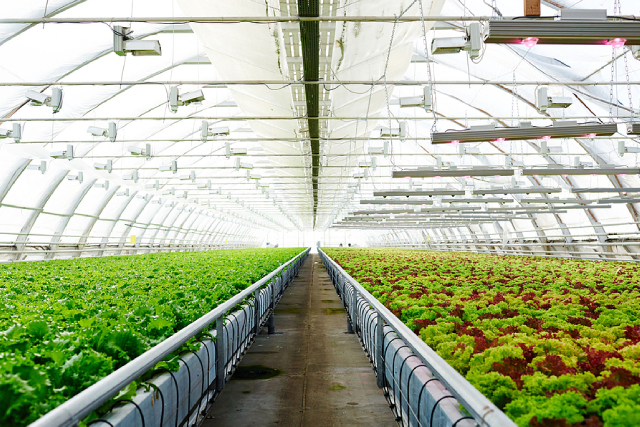
14 Aug 3 Types Of Plants To Avoid Growing In Your Hydroponic Farm
Hydroponic gardening has rapidly gained popularity among urban dwellers and agricultural enthusiasts looking to buy a hydroponic system in Singapore. This soil-less farming technique allows you to grow plants in nutrient-rich water, providing a controlled environment that can lead to faster growth and higher yields. With the increasing interest in hydroponics, many are looking for the top plants recommended for hydroponic farming to maximise their success. However, while numerous plants thrive in hydroponic systems, there are some that you should steer clear of to ensure a healthy and productive garden.
Growing a hydroponic garden can be a rewarding experience, but it’s essential to know which plants might cause more trouble than they’re worth. Certain plants can pose challenges such as root diseases, excessive maintenance, or poor yields when grown in a hydroponic setup. In this article, we will discuss three types of plants that you should avoid growing in your hydroponic farm, and provide insights on how to choose better alternatives.
1. Root vegetables
Root vegetables like carrots, potatoes, and beets are generally not suitable for hydroponic farming. These plants require a significant amount of space to develop their roots, which can be difficult to provide in a hydroponic system. The compact nature of hydroponic setups can restrict the growth of these root vegetables, leading to stunted or misshapen produce.
Additionally, root vegetables are prone to rot if their roots are submerged in water for extended periods. Hydroponic systems, which rely on water to deliver nutrients, can create an environment where root rot is more likely to occur. This not only affects the health of the plants but can also lead to the spread of disease within your hydroponic garden. For these reasons, it’s better to grow root vegetables in traditional soil-based gardens where they can thrive.
2. Corn
Corn is another plant that poses challenges for hydroponic gardeners. This tall and heavy feeder requires ample nutrients and space, making it difficult to manage in a hydroponic system. Corn plants can grow up to 10 feet tall, necessitating strong support structures to keep them upright. Most hydroponic setups are not designed to handle such tall plants, leading to potential issues with stability and space.
Moreover, corn has a high nutrient demand, particularly for nitrogen, which can be difficult to supply consistently in a hydroponic system. This can result in poor growth and low yields. Corn also requires a lot of light and is best grown outdoors in large fields where it can receive full sunlight. Given these challenges, it’s advisable to avoid growing corn in your hydroponic garden and opt for more manageable plants instead.
3. Melons
Melons, including watermelons, cantaloupes, and honeydews, are generally unsuitable for hydroponic farming due to their size and growth habits. These plants produce large, heavy fruits that require a lot of space and support. The weight of the melons can be too much for the typical hydroponic setup, leading to potential damage to the system and the plants.
Furthermore, melons have extensive root systems that can become tangled and overgrow the confines of a hydroponic system. This can lead to nutrient competition and poor fruit development. Melons also need a lot of sunlight and warmth, which can be challenging to provide consistently in an indoor hydroponic environment. For these reasons, melons are better suited for traditional gardening methods where they can spread out and receive ample sunlight.
Choosing better alternatives
Instead of struggling with plants that are not well-suited for hydroponic farming, consider growing plants that thrive in this environment. Leafy greens like lettuce, spinach, and kale are excellent choices for hydroponic systems. They have shallow root systems, grow quickly, and do not require extensive support structures.
Herbs such as basil, mint, and cilantro are also ideal for hydroponic gardens. They are relatively easy to grow, have modest nutrient requirements, and can be harvested continuously, providing a steady supply of fresh herbs for your kitchen.
Another great option is to grow fruiting plants like tomatoes, peppers, and cucumbers. These plants can be highly productive in hydroponic systems when provided with proper support and adequate nutrients. They also tend to have smaller root systems compared to melons, making them easier to manage in a confined space.
Conclusion
Avoiding problematic plants like root vegetables, corn, and melons can help you maintain a healthy and productive hydroponic garden. By choosing plants that are better suited for hydroponic farming, you can enjoy the benefits of faster growth, higher yields, and fewer maintenance issues.
If you’re looking to start or expand your hydroponic garden, consider exploring Vicplas’ VPONIC™ line of Hydro-Agriculture solutions. We offer an array of high-quality trays, gutters, channels, and pot nets, all customisable to suit your needs. With the right setup and plant choices, your hydroponic garden can flourish and provide you with a bountiful harvest.
